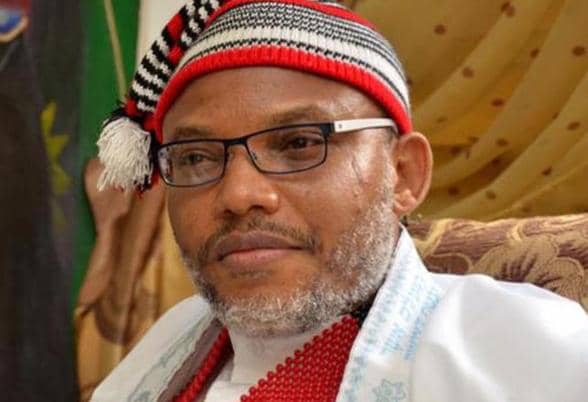The Federal High Court in Abuja has again given detained leader of the Indigenous People of Biafra (IPOB), Nnamdi Kanu, additional time to open his defence in the terrorism case brought against him by the Federal Government.
Justice James Omotosho, who presided over Wednesday’s proceedings, ruled that Kanu now has until November 7, 2025, to defend himself or risk waiving his right to do so.
The fresh extension, the judge said, was granted “in the interest of justice and the nation,” following another stalemate in attempts to commence the defence phase of the trial.
Instead of opening his defence, Kanu spent hours addressing the court, insisting that there were “no valid charges” against him to answer. He argued that the Terrorism Prevention and Prohibition Act, under which he is being tried, had been repealed.
According to him, the Supreme Court had previously ordered the Federal Government to amend the charge, but the prosecution had not complied.
“The Terrorism Prevention and Prohibition Act has been repealed. I cannot put in defence under a repealed law. I won’t do that,” Kanu said, insisting that no trial could proceed without a valid law backing it.
He maintained that the failure to amend the charges was “fatal” to the legitimacy of the trial.
Justice Omotosho reminded Kanu to “keep his gunpowder dry,” urging him to allow the trial to progress. However, Kanu maintained that there was still no legal basis for him to defend himself.
Counsel to the Federal Government, Chief Adegboyega Awomolo (SAN), asked the court to enforce its previous order requiring Kanu to either present his defence or waive the right permanently.
But the judge said he was willing to “bend backwards” once more to give the defendant a chance to reconsider.
At one point, Kanu indicated willingness to eventually open his defence but said he would first need time to consult with four legal consultants: Nnaemeka Ejiofor, Aloy Ejimakor, Maxwell Okpara, and Mandela Umegborogu
Justice Omotosho again advised him to seek guidance from lawyers experienced in criminal law.
Nnamdi Kanu has remained in custody since June 2021, when he was brought back to Nigeria from Kenya under circumstances that sparked widespread controversy. His trial has since been marked by prolonged legal disputes and repeated adjournments.



























